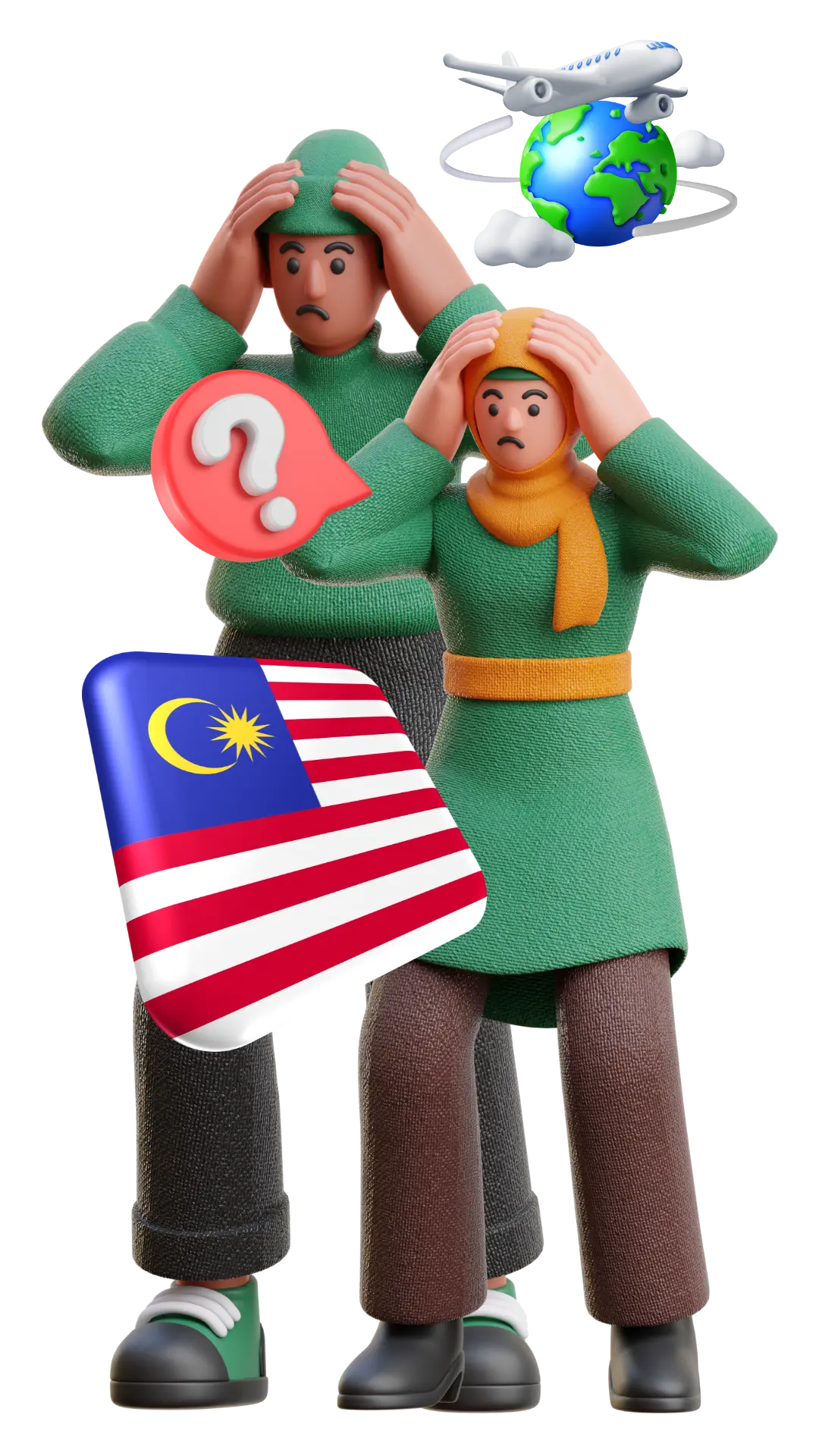
Should I seek asylum in Malaysia?
While Malaysia might seem like a potential country to seek refuge, it’s important to be aware of several challenges:
✅Refugees aren’t recognized in Malaysia: Malaysia does not officially recognize refugees as it has not signed the Refugee Conventions. This means you will have very limited legal protections. 🔗 Click here to learn about the 1951 Refugee Convention 🔗
✅Employment: Finding work is difficult, often limited to dangerous, dirty, and dangerous (3D) jobs with little job security or fair wages. 🔗 Click here to listen to their experiences 🔗
✅Healthcare: Access to affordable healthcare is limited, and you may face high medical costs without insurance. 🔗 Click here for a list of Community Clinics🔗
✅ Education: Public schools are not accessible for your children, forcing you to rely on costly private schooling options. 🔗 Click here for a list of Refugee Schools in Malaysia 🔗
✅ Detention Centers: Malaysian detention centers are known for poor conditions and human rights concerns. 🔗 Click here to watch stories of Detention 🔗
✅ Resettlement: It can take many years for the UNHCR to resettle you to another country, leaving you in a prolonged state of uncertainty.
✅ Human Trafficking: There is a risk of becoming vulnerable to human trafficking. 🔗 Click here for stories of Human Trafficking 🔗
✅Explore Migrantinfo.net : Visit Migrantinfo.net for guides on safety, legal rights, and migration policies in Malaysia. Our resources can help you make an informed decision about whether migrating to Malaysia for work is the right choice for you. 🔗 Click for more information; Malaysian Laws, Stories from other Migrants in Malaysia, How to Make a Financial Plan🔗
Life as a Refugee in Malaysia
Malaysia has not signed the Geneva Convention 1951 and the Refugee Protocol 1957. However, considering the significant number of refugees in the country, this policy should be reconsidered.
If a country does not sign the Geneva Convention of 1951 and the Refugee Protocol of 1957, it means that the country is not legally bound to adhere to the international standards and obligations for the protection of refugees set forth in these agreements. This can have several implications:
🔴 No Legal Obligation to Protect Refugees: The country is not required to grant asylum, provide specific protections, or ensure the rights of refugees as outlined in the Convention and Protocol.
🔴No Formal Refugee Status: Refugees in the country may not be officially recognized as such, which can limit their access to legal protection, social services, and employment.
🔴Risk of Deportation: Without the legal protections of the Convention, refugees may be at greater risk of being detained, deported, or repatriated to their home countries where they may face persecution.
🔴Limited Access to Aid: Refugees might have limited access to aid and assistance programs that often depend on a country’s adherence to the Convention.
🔴Increased Vulnerability: Refugees may face heightened vulnerability to exploitation, human trafficking, and abuse without the legal framework to protect their rights and well-being.
🔴Reliance on UNHCR: In countries that have not signed the Convention, the United Nations High Commissioner for Refugees (UNHCR) often plays a critical role in providing protection and assistance, but their capacity may be limited compared to the protections that a signatory country is obliged to provide.
🔴Racism & Xenophobia: Malaysia does have issues with xenophobia and racism. Instances of discrimination or prejudice may occur, and you need to be prepared for this.
